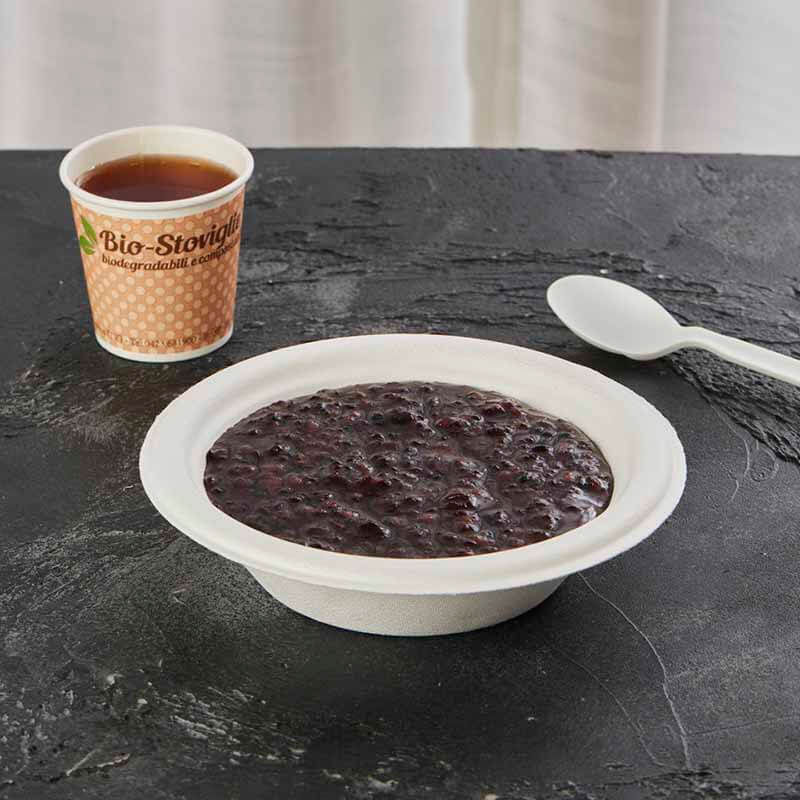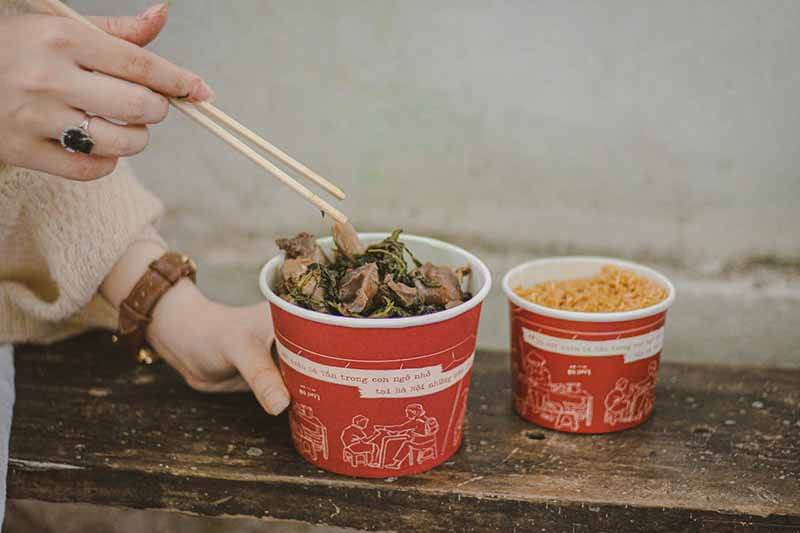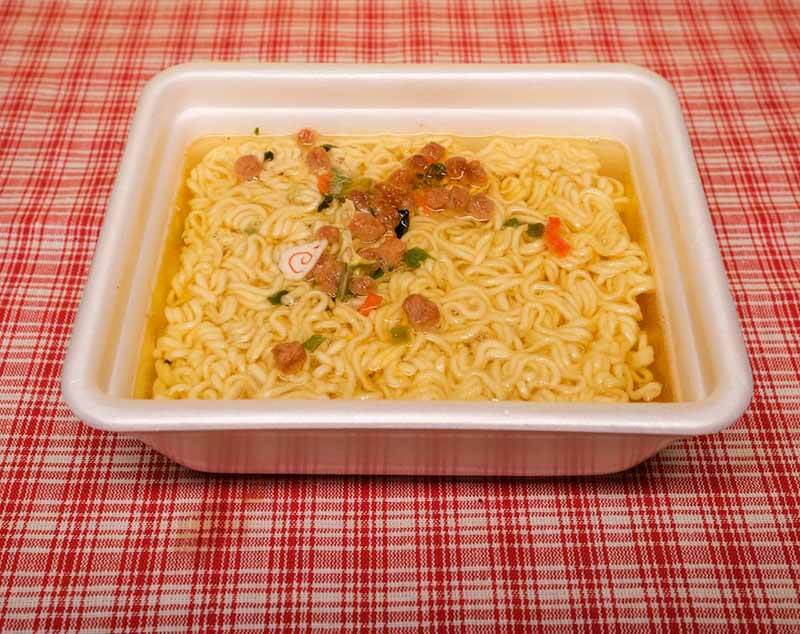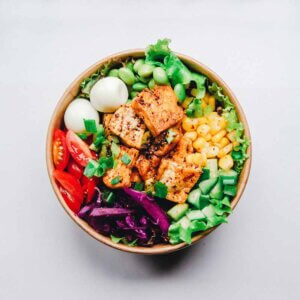A Quick Buying Guide for Disposable Soup Containers
If you are running a restaurant and serving soup on your takeaway orders, choosing the appropriate disposable soup containers is important for you. The disposable soup container needs to ensure the soup stays warm and fresh but also prevent leaks and spills. As you can see, there are so many options of disposable soup containers with lids on the market, you should consider their sustainability, durability, and practicality to make informed decisions that will benefit your restaurant and consumers.

Types of Disposable Soup Containers
Before choosing the proper disposable bowls with lids for soup, you need to understand the material options that are used to make the containers. Each of them has unique features, and you should make the choice based on the needs of your business and customers.
Paper-Based Containers
The paper soup containers are popular due to their eco-friendly properties. They are generally made from recyclable materials with thin lining inside together to prevent leaks. These types of containers have some insulation properties, so they can help maintain the temperature of the soup to some extent. This is a good choice for some businesses that want sustainable solutions for business development.
Plastic Containers
The plastic soup containers are popular for their durability and sturdiness. They are clear and offer visibility, making them the ideal choice for both hot and cold soups. But not all plastics are recyclable and safe. If served with hot soups or needing to heat the disposable soup container, you have to consider the environmental impact of the plastic, safety when used for hot soups, and acceptance of environmentally friendly consumers.
Biodegradable Containers
For some businesses that focus on sustainability, the biodegradable soup containers are the best choice. These containers are made from compostable materials, such as plant fibers or cornstarch, they can break down naturally and will not cause pollution to the environment. They offer the functionality of traditional containers does while being more eco friendly, that’s why they are more and more popular in the market today.
Foam Containers
Foam containers were once very popular due to their cheap price and insulation properties. But due to the environmental hazards caused by the material, their popularity is decreasing year by year. Many cities have also begun to implement bans on foam products since they are not recyclable or biodegradable.
Key Features to Consider
After knowing the types of disposable soup containers sold on the market, you’d better understand their specific features to ensure they can perform well when serving your consumers.
Material Quality
The material of disposable soup bowls with lids will affect their performance. Each material has its own pros and cons.
- Paper-Based Containers: They are eco-friendly and recyclable, which is a good option for a sustainable business. But these containers need special coating to prevent leaks, such coating may impact on recyclability.
- Plastic Containers: Clear and easy to know what is inside the container, but not all plastic is recyclable, and when you use the disposable plastic soup bowls for serving the hot food, food safety may be an issue.
- Biodegradable Containers: They offer the best environmental benefits, but the price of this material may be a little bit higher than other materials.
- Foam Containers: They provide excellent insulation, but they are not eco-friendly, so their usage has been declining.
Heat Retention
- Foam Containers: This material has the best insulation properties in keeping the soup warm.
- Paper-Based Containers: This material has good heat retention if coated with an insulated layer but may not be as effective as foam.
- Plastic and Biodegradable Containers: They generally retain heat well but not as well as foam.
Leak-Proof and Spill-Proof Lids
- Paper, Biodegradable, and Plastic Containers: They often come with snap-on or screw-on lids, which offer a tight seal.
- Foam Containers: The lids on the foam containers are not tightly secured sometimes, and if not properly handled, the soup may spill out.
Size and Portion Control
- 8 oz Soup Containers: They are suitable for serving small or side portions.
- 16 oz Soup Containers: They are suitable for medium-sized servings.
- 32 oz Soup Containers: They are suitable for large servings or family-sized portions.
Stackability and Space-Saving Design
- Paper-based, Biodegradable, and Plastic Containers: Their design generally offers good stackability.
- Foam Containers: Their stackability is not as efficient as the above three materials.

Sustainability and Eco-Friendly Options
In recent years, both businesses and consumers have preferred sustainable disposable soup containers. So, recyclable and compostable materials are becoming an important consideration.
Growing Demand for Compostable and Recyclable Containers
Due to the pollution of plastic to the environment and the increasing environmental awareness, many companies and consumers are looking for sustainable alternatives to traditional plastic and foam containers, such as:
- Compostable Containers: They are made from plant-based materials like cornstarch, bagasse (sugarcane fiber), or molded fiber and can break down naturally without leaving any harmful waste.
- Recyclable Containers: After recycling, they can be processed to create new products, reducing the strain on natural resources and pressure on landfills.
Benefits of Choosing Biodegradable Materials
Choosing disposable soup bowls that are made from biodegradable materials will benefit our environment a lot.
- Reduced Environmental Impact: Using to go soup containers made of biodegradable materials will reduce the use of plastic materials, which can break down much quicker than plastic.
- Compostable: Many biodegradable containers can be composted; this could help to produce the nutrient-rich soil, rather than buried in landfill.
- Lower Carbon Footprint: Due to the resource of the compostable materials are from plants, their production generates fewer greenhouse gases compared to plastic or foam.
- No Harmful Chemicals: The biodegradable take out soup containers will not release harmful toxins into the environment. However, the plastic and foam will release chemicals when exposed to heat or sunlight.

Price vs. Value
Price is also another important factor when choosing the to go soup containers, so you should balance between the cost and quality. The cheap price take out soup containers may be very attractive, but high-quality disposable soup bowls will provide your business long-term value. Let’s take a look.
Balancing Cost with Quality
The cheap soup container looks to save money for you at the beginning of the business, but they may have some disadvantages, such as poor heat retention, flimsy material, or lids that don’t secure properly. These are the bad factors that will affect your business:
- Spills and Leaks: Poor-quality soup containers will cause the soup to spill everywhere. No customer will like such restaurant service.
- Waste: The spillage of food leads to food waste, and you may need to make a new portion for the consumer, which increases costs.
- Customer Satisfaction: Customers are willing to pay for food safety and health, and low-quality disposable bowls for soup will not satisfy customers.
Bulk Purchase Options
Disposable soup containers manufacturer is more willing to provide wholesale prices to sell them in large quantities. If you are handling a business that frequently serves soup, this is a good option.
Long-Term Savings
Although the premium disposable soup container looks more expensive at the beginning, they can save money in the long run.
- Spillage and Spoilage: High-quality, leak-proof containers prevent loss of product, ensuring the soup is in good condition upon arrival.
- Reputation Damage: Using reliable, secure containers can maintain your consumer’s trust and satisfaction, which will provide repeat business.
- Environmental Impact: The price of compostable or biodegradable soup containers may be higher than other materials, but you will save a lot on garbage disposal and improve brand loyalty.
Are you looking for disposable soup containers for your business? Eco March is the manufacturer of various biodegradable & compostable food containers for catering, We offer customized service; contact us to get Wholesale Price Today!
You may also be interested in:

John Q
John Q is Eco March’s Product Manager. With 5 years of prior experience in the food industry after graduating from university, he has been an integral part of Eco March. He excels in creating and developing eco-friendly food packaging products with a keen focus on enhancing the consumer experience.

